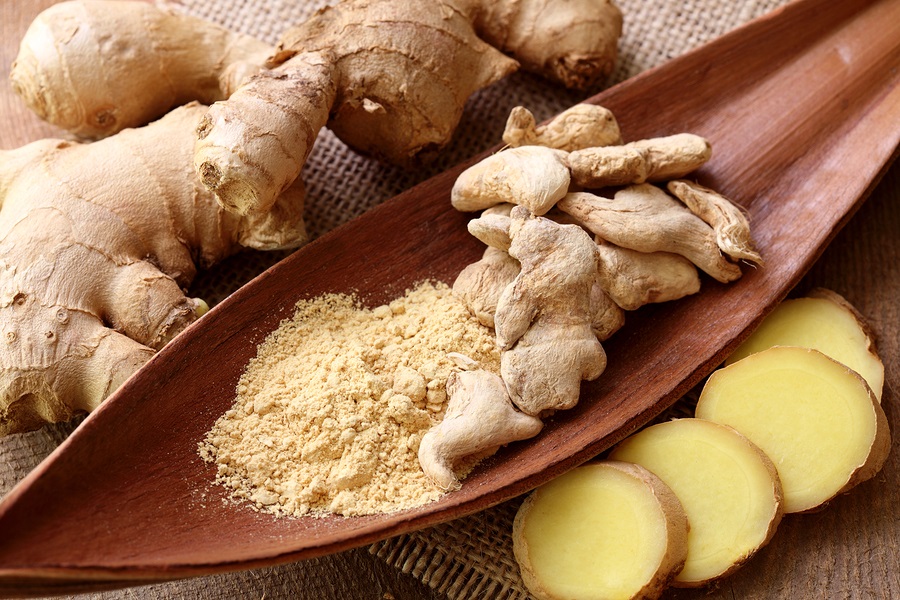
GINGER-Carolaroma
Ginger (Zingiber officinale) is a flowering plant whose rhizome, ginger root or simply ginger, is widely used as a spice or a folk medicine.[2]
It is a herbaceous perennial which grows annual stems about a meter tall bearing narrow green leaves and yellow flowers. Ginger is in the family Zingiberaceae, to which also belong turmeric (Curcuma longa), cardamom (Elettaria cardamomum), and galangal. Ginger originated in the tropical rainforest in Southern Asia. Although ginger no longer grows wild, it is thought to have originated on the Indian subcontinent because the ginger plants grown in India show the largest amount of genetic variation. Ginger was exported to Europe via India in the first century AD as a result of the lucrative spice trade and was used extensively by the Romans.
The distantly related dicots in the genus Asarum are commonly called wild ginger because of their similar taste.

Possible health benefits of ginger
Consuming fruits and vegetables of all kinds has long been associated with a reduced risk of many lifestyle-related health conditions.
Many studies have suggested that increasing consumption of plant foods like ginger decreases the risk of obesity, diabetes, heart disease and overall mortality while promoting a healthy complexion and hair, increased energy and overall lower weight.
1) Digestive issues
The phenolic compounds in ginger are known to help relieve gastrointestinal irritation, stimulate saliva and bile production and suppress gastric contractions and movement of food and fluids through the GI tract.
MUST READ
Ajowan essential oils
2) Nausea
Chewing raw ginger or drinking ginger tea is a common home remedy for nausea during cancer treatment.
Pregnant women experiencing morning sickness can safely use ginger to relieve nausea and vomiting, often in the form of ginger lozenges or candies.
During cold weather, drinking ginger tea is good way to keep warm. It is diaphoretic, which means that it promotes sweating, working to warm the body from within. As such, in the wake of a cold, ginger tea is particularly useful.
To make ginger tea at home, slice 20-40 g of fresh ginger and steep in a cup of hot water. Adding a slice of lemon or a drop of honey adds flavor and additional benefits, including vitamin C and antibacterial properties.
3) Pain reduction
A study involving 74 volunteers carried out at the University of Georgia found that daily ginger supplementation reduced exercise-induced muscle pain by 25%.
Ginger has also been found to reduce the symptoms of dysmenorrhea (severe pain during a menstrual cycle). In one study, 83% of women taking ginger capsules reported improvements in pain symptoms compared to 47% of those on placebo.
4) Inflammation
Ginger has been used for centuries to reduce inflammation and treat inflammatory conditions.
A study published in Cancer Prevention Research journal found that a ginger root supplement administered to volunteer participants reduced inflammation markers in the colon within a month. Researchers on the study explained that by decreasing inflammation, the risk of colon cancer is also likely to decrease. Ginger has also shown promise in clinical trials for treating inflammation associated with osteoarthritis.
